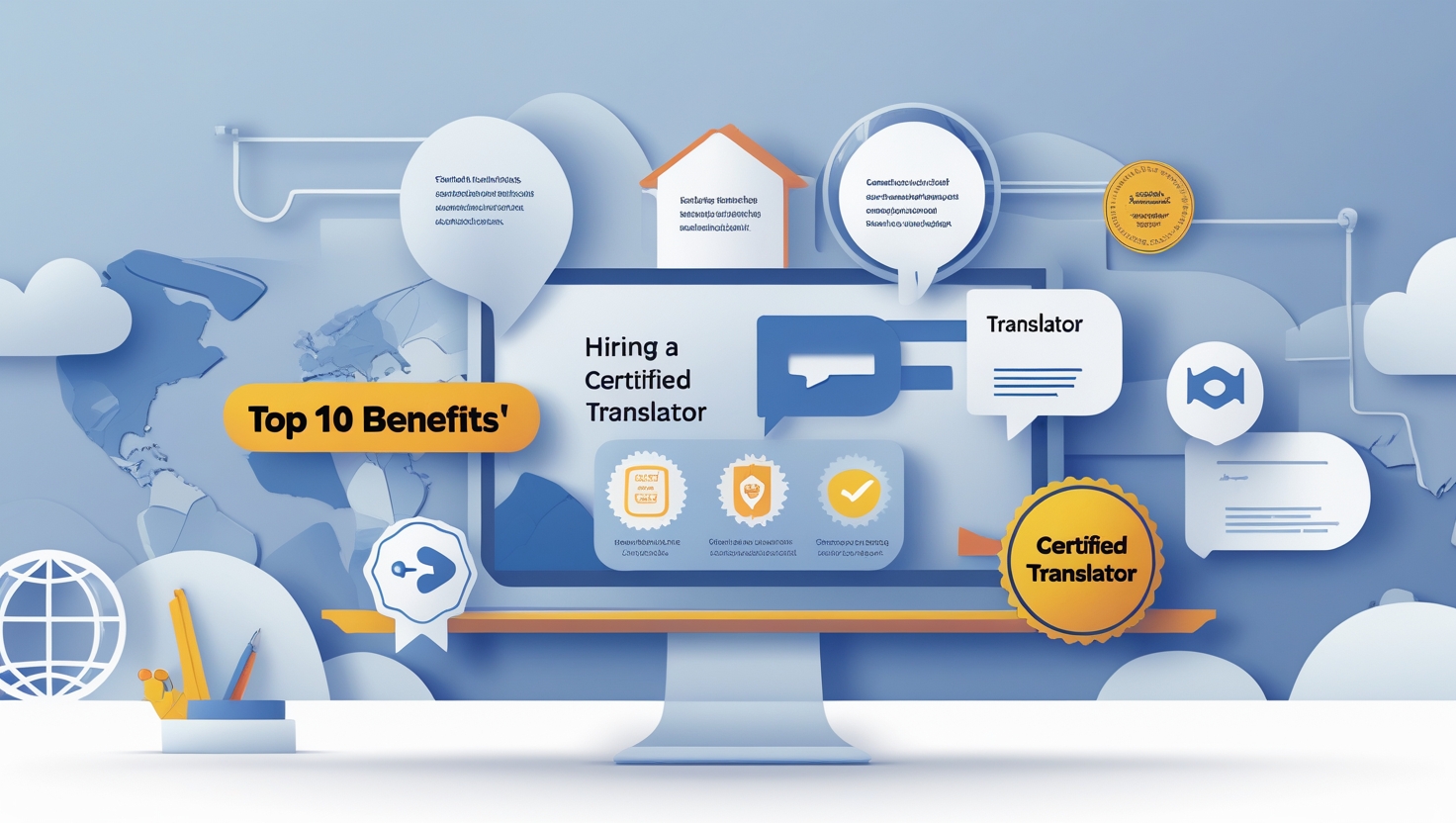In today’s globalized world, accurate and professional translation services are more important than ever. Whether you're a business expanding into international markets, a student applying to a foreign university, or an individual managing legal or personal documents, the need for precise translation cannot be overstated. This is where certified translators come in. Below, we delve into the top 10 benefits of hiring a certified translator and why they are indispensable for ensuring accurate and reliable translations.
1. Guaranteed Accuracy
Certified translators are trained professionals who ensure the accuracy of your translations. They have a deep understanding of both the source and target languages, minimizing the risk of errors that can lead to misunderstandings or misinterpretations.
2. Professional Expertise
Certified translators often specialize in specific fields, such as legal, medical, or technical translations. Their expertise ensures that industry-specific terminology is translated correctly, preserving the original meaning.
3. Recognition by Official Authorities
Documents translated by certified translators are often recognized and accepted by official institutions, such as embassies, courts, and universities. This is especially crucial for legal and immigration processes.
4. Confidentiality
Certified translators adhere to strict confidentiality agreements, ensuring that your sensitive information remains private and secure. This is particularly important for legal, medical, and business documents.
5. Time Efficiency
Certified translators work efficiently to meet deadlines without compromising quality. Their experience allows them to deliver accurate translations quickly, saving you valuable time.
6. Cultural Sensitivity
Beyond translating words, certified translators are aware of cultural nuances. They ensure that the translated content is culturally appropriate, helping you avoid potential missteps in international communication.
7. Avoiding Costly Errors
Inaccurate translations can lead to misunderstandings, legal issues, or damaged reputations. Hiring a certified translator ensures accuracy, saving you from costly mistakes in the long run.
8. Quality Assurance
Certified translators are held to high professional standards and often undergo rigorous testing to obtain their certification. Their work reflects their commitment to quality, ensuring the final product meets your expectations.
9. Legal Compliance
For official documents like contracts, patents, or immigration papers, certified translators provide legally compliant translations. Their certifications often include seals or notarizations required by legal authorities.
10. Global Reach
Certified translators enable seamless communication across language barriers, helping businesses and individuals connect with a global audience. Their expertise opens doors to international opportunities.
FAQs About Hiring a Certified Translator
1. What is a certified translator?
A certified translator is a professional who has undergone formal training and certification to provide accurate translations. They may also be accredited by recognized institutions or government bodies.
2. When do I need a certified translator?
You need a certified translator for official documents like birth certificates, legal contracts, academic transcripts, immigration papers, and medical records, especially when these are required by authorities.
3. How do I verify a translator's certification?
You can verify a translator’s credentials by checking their certification from recognized institutions, such as ATA (American Translators Association) or other regional accrediting bodies.
4. How much does it cost to hire a certified translator?
Costs vary depending on the complexity, length, and language pair. Certified translators may charge per word, per page, or a flat rate for specific projects.
5. Are certified translators better than machine translation tools?
Yes, certified translators provide context, cultural sensitivity, and accuracy that machine translation tools cannot achieve. Machines are prone to errors and lack the ability to interpret nuances.
6. Can certified translators handle specialized terminology?
Yes, certified translators often specialize in fields such as law, medicine, or technology, ensuring accurate translation of specialized terminology.
7. Is a certified translator necessary for all translations?
Not always. For informal or personal translations, a certified translator may not be necessary. However, for official or critical documents, hiring a certified translator is essential.
8. How long does it take to complete a translation?
The time required depends on the document’s length, complexity, and the translator’s availability. Certified translators usually provide an estimated timeline upfront.
9. Can a certified translator translate multiple languages?
Some certified translators are multilingual and can translate multiple languages. However, their certifications are typically language-pair specific.
10. Where can I find a certified translator?
You can find certified translators through professional organizations, translation agencies, or online platforms that specialize in language services.

